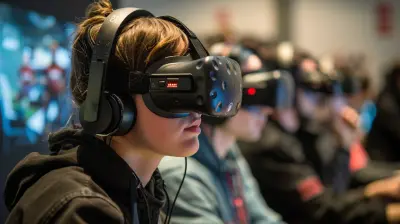Wearable Devices and Fashion: When Technology Meets Style
18 November 2025
Technology is no longer just about functionality—it’s about looking good while doing it. From smartwatches that double as fashion statements to high-tech fabrics that adapt to your environment, wearable devices are blending seamlessly with fashion like never before. But how exactly is technology shaking up the fashion industry? And more importantly, is style taking a backseat to innovation, or are they evolving together?
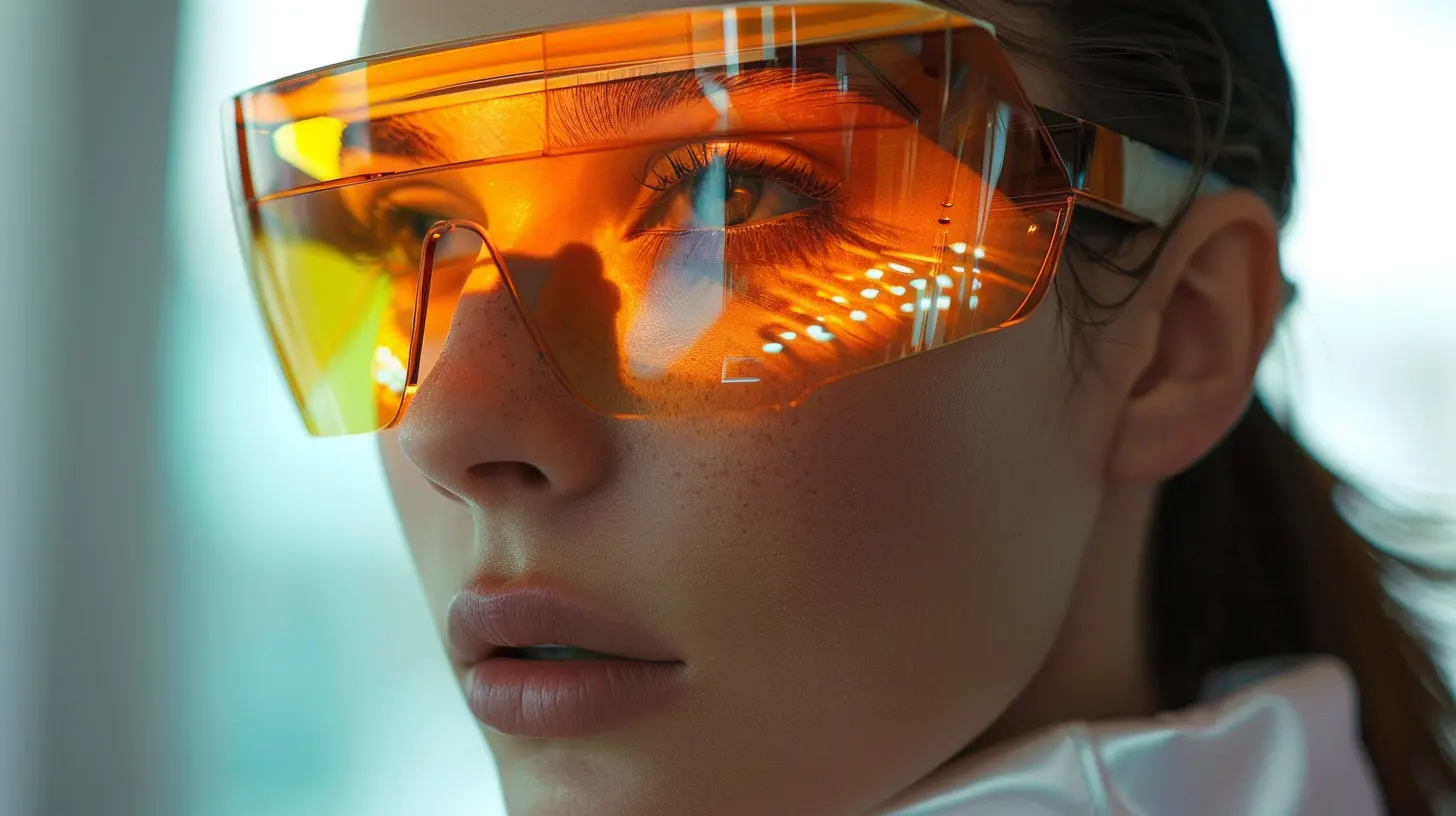
The Intersection of Fashion and Technology
Gone are the days when wearable tech was clunky and unappealing. Remember early fitness trackers? They were more about utility than aesthetics. Fast forward to today, and we have sleek and stylish smartwatches, smart glasses, and even tech-infused clothing designed by top fashion brands.Fashion designers and tech giants are collaborating to create products that not only enhance our daily lives but look stunning while doing it. This isn’t just about convenience anymore—wearable technology has become an essential part of modern style statements.
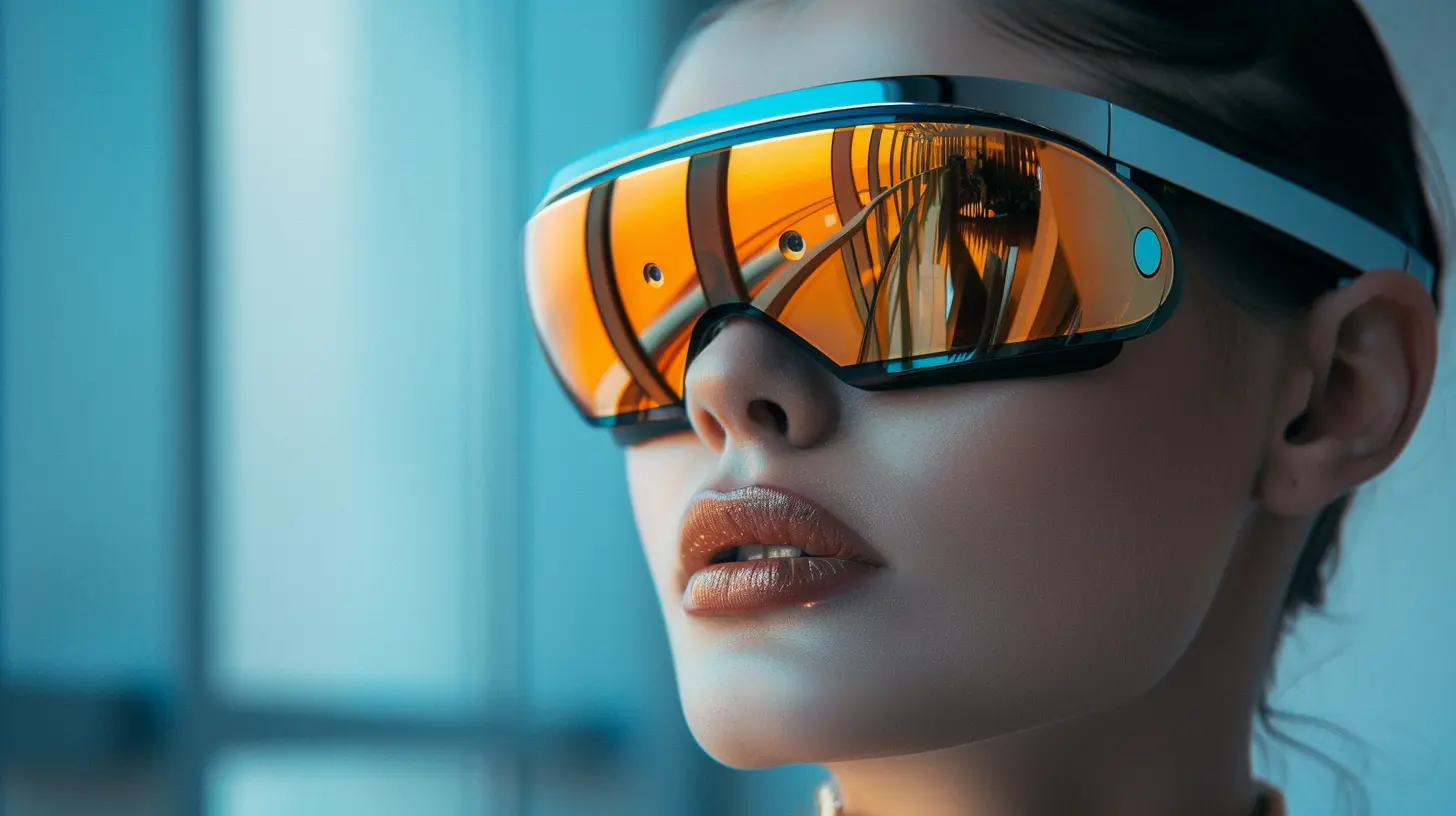
The Evolution of Wearable Devices in Fashion
1. Smartwatches: More Than Just Timepieces
Smartwatches have come a long way. Initially built for fitness tracking, they now serve as a full-fledged style accessory. Brands like Apple, Samsung, and Garmin ensure their designs appeal to both tech enthusiasts and fashion-conscious individuals.Luxury watchmakers have also stepped into the game. Tag Heuer, Montblanc, and Louis Vuitton offer smartwatches that not only feature cutting-edge tech but also scream sophistication. Swapping straps, choosing different watch faces, and even customizing materials have turned smartwatches into personal style statements.
2. Smart Glasses: A New Vision for Fashion
Google Glass might have introduced the concept, but modern smart glasses are vastly different. Brands like Ray-Ban in collaboration with Meta and Bose have redefined what smart glasses look like. These don’t make you feel like a character out of a sci-fi movie; instead, they blend seamlessly with everyday fashion.Today, smart glasses offer built-in speakers, augmented reality (AR) features, and even AI-powered assistants—all while looking like regular eyewear. They enhance functionality without compromising on aesthetics, making them the perfect merger of fashion and technology.
3. Smart Rings: The Subtle Yet Impactful Accessory
Not everyone wants to wear a bulky device on their wrist, and that’s where smart rings come in. These tiny devices pack a punch when it comes to features—tracking sleep, monitoring heart rate, and even making contactless payments.Companies like Oura and RingConn have made these rings not just a piece of tech but a stylish and fashionable accessory that blends well with any look. Unlike most wearables, smart rings are discreet, meaning you get all the benefits of wearable tech without drawing too much attention.
4. Smart Clothing: Fashion That Adapts to You
Imagine a jacket that heats up when it’s cold or a shirt that changes color based on your mood. Sounds futuristic? Well, it’s already here. Smart clothing incorporates innovative fabrics and embedded sensors to enhance both comfort and style.Brands like Levi’s (with their smart jackets), Ralph Lauren (with their biometric shirts), and even Nike (with self-lacing sneakers) have already introduced tech-infused fashion pieces. Wearable technology in clothing is not only fashionable but also practical—helping athletes, outdoor adventurers, and everyday users optimize their experiences.
5. Wearable Health Tech: Where Wellness Meets Style
Health-focused wearables have become a significant part of modern fashion. Whether it’s ECG monitoring smartwatches or stress-detecting bracelets, these devices prioritize health without compromising on aesthetics.Take the Fitbit Luxe, for example. Unlike its earlier versions that were purely functional, this one is built to complement your outfit while delivering top-notch health tracking. Similarly, Whoop bands allow users to swap out stylish bands, making them more personalized and fashion-forward.
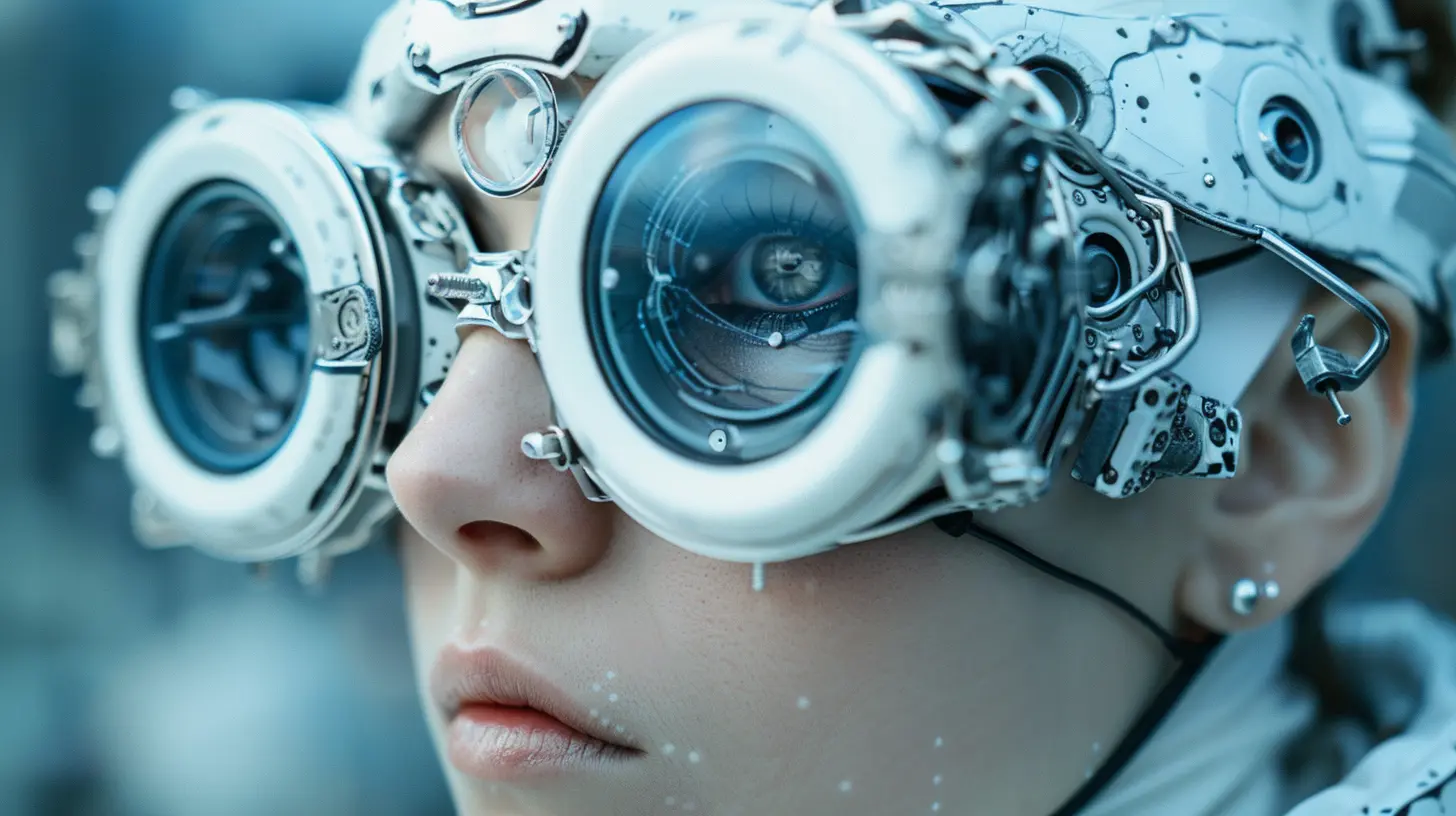
Why Fashion and Tech Are a Perfect Match
1. The Demand for Personalization
People love personalization. Whether it’s choosing the color of their smartwatch band or customizing the interface of their smart glasses, wearable tech is all about individuality. Fashion thrives on the same principle—self-expression is key. The merging of these industries allows consumers to customize their tech accessories, making them an extension of their personal style.2. Integration Into Everyday Life
Unlike other gadgets, wearables are meant to be a part of your daily wardrobe. A fitness tracker doesn’t just sit in a drawer—it’s on your wrist every day. Similarly, smart clothing and glasses are designed to blend into your lifestyle effortlessly.Since we wear these devices as part of our outfits, it only makes sense for them to be stylish. Tech companies now recognize this and collaborate with fashion brands to ensure these gadgets aren’t just practical but also look good.
3. Fashion Brands Are Embracing Innovation
Big fashion brands and luxury designers are no longer afraid of technology. Instead, they see it as an opportunity to innovate. High-end fashion houses like Gucci and Prada have started incorporating tech into their designs, creating smart fabrics, interactive accessories, and even NFT-integrated wearables.Fashion isn’t static—it evolves. And as consumer lifestyles become more tech-driven, fashion has no choice but to keep up.
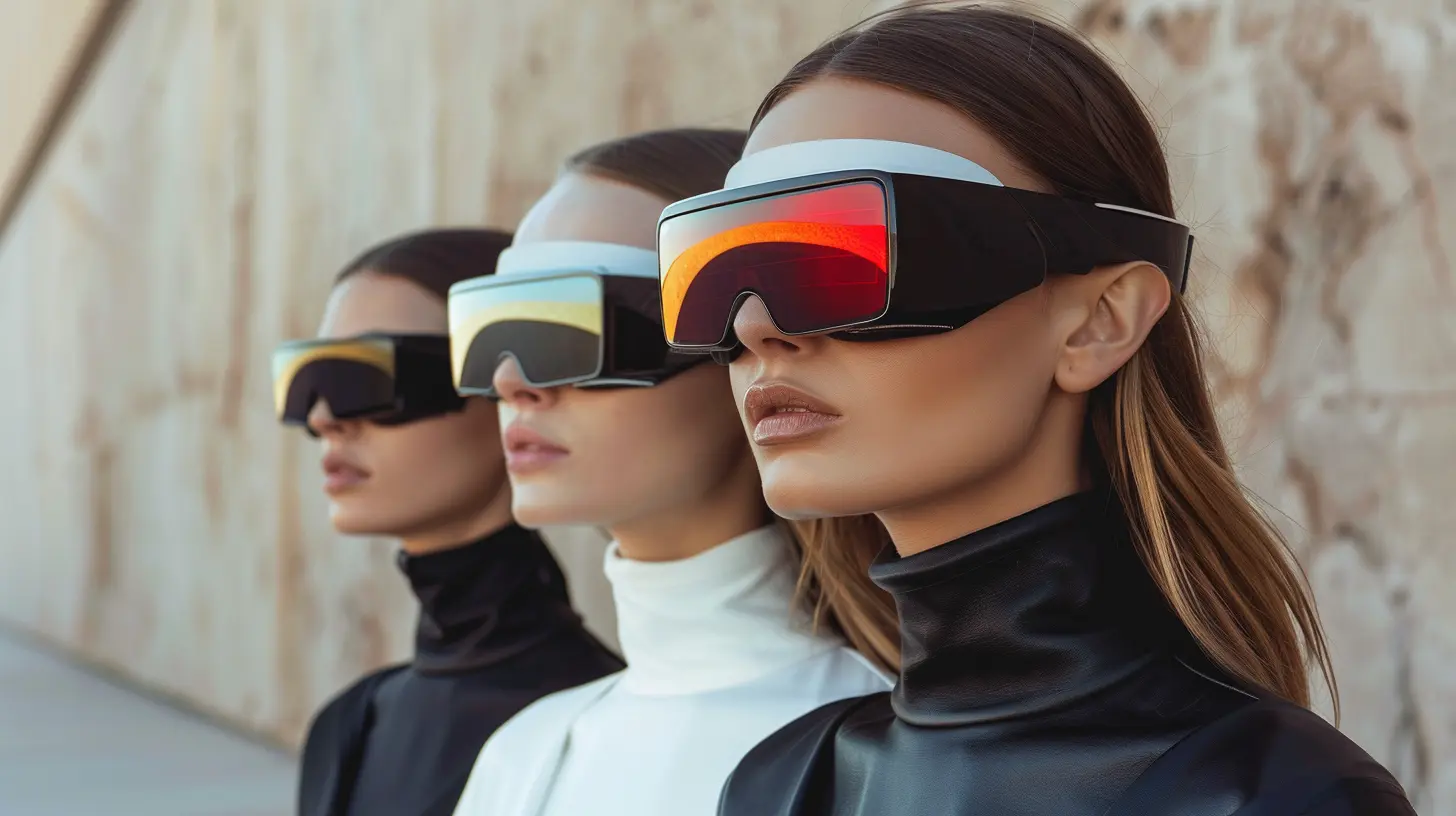
Challenges and Concerns in Fashion-Integrated Wearables
Of course, not everything is smooth sailing. The integration of technology into fashion does come with challenges.1. Balancing Functionality and Aesthetics
While many brands are doing a great job of making wearables stylish, some still struggle to strike the right balance. A highly functional wearable might not always be the most fashionable, and a trendy design might compromise on usability.2. Battery Life Issues
The more stylish a wearable device becomes, the harder it is to fit in larger batteries. Users want thin, lightweight wearables, but that often means shorter battery life. Finding the right balance between longevity and sleekness remains a major hurdle.3. Privacy and Security Concerns
With wearables collecting vast amounts of personal data—heart rate, sleep patterns, location tracking—there’s always concern over privacy. While fashion-forward wearables are great, consumers need reassurance that their data is being kept safe.The Future of Wearable Devices in Fashion
So, where is all this headed? Well, wearable technology isn’t going away anytime soon. In fact, it’s only going to get smarter, sleeker, and more stylish.Imagine AI-powered fashion assistants embedded into clothing, fabrics that adapt to environmental conditions in real time, or accessories that integrate seamlessly with the metaverse. The evolution of wearable tech is just beginning, and fashion will continue to play a huge role in its development.
Final Thoughts
Wearable devices and fashion are no longer two separate worlds—they are one and the same. As technology continues to evolve, it will further integrate with our daily wardrobes, making wearables not only useful but also a core part of personal style.Whether it’s a smartwatch that complements your outfit or a smart jacket that adapts to your environment, one thing is clear—technology and fashion are a match made in heaven. And who knows? The next big trend might be something we haven’t even imagined yet.
all images in this post were generated using AI tools
Category:
Wearable DevicesAuthor:

Michael Robinson
Discussion
rate this article
2 comments
Mandy Sweeney
Embracing the fusion of wearable tech and fashion is a testament to innovation! These devices not only enhance our lives but also empower personal expression. Here's to a stylish future where technology complements our unique identities!
December 1, 2025 at 12:40 PM

Michael Robinson
Thank you! I completely agree—wearable tech is revolutionizing fashion by blending functionality with personal style, paving the way for a more expressive and innovative future.
Honor McElroy
Great article! It's exciting to see how wearable devices are seamlessly blending with fashion, making technology more accessible and stylish. This fusion not only enhances functionality but also empowers individuals to express their unique style. Looking forward to the future of tech-infused fashion!
November 20, 2025 at 5:06 AM

Michael Robinson
Thank you! I'm glad you enjoyed the article. The intersection of fashion and technology truly is an exciting frontier!


